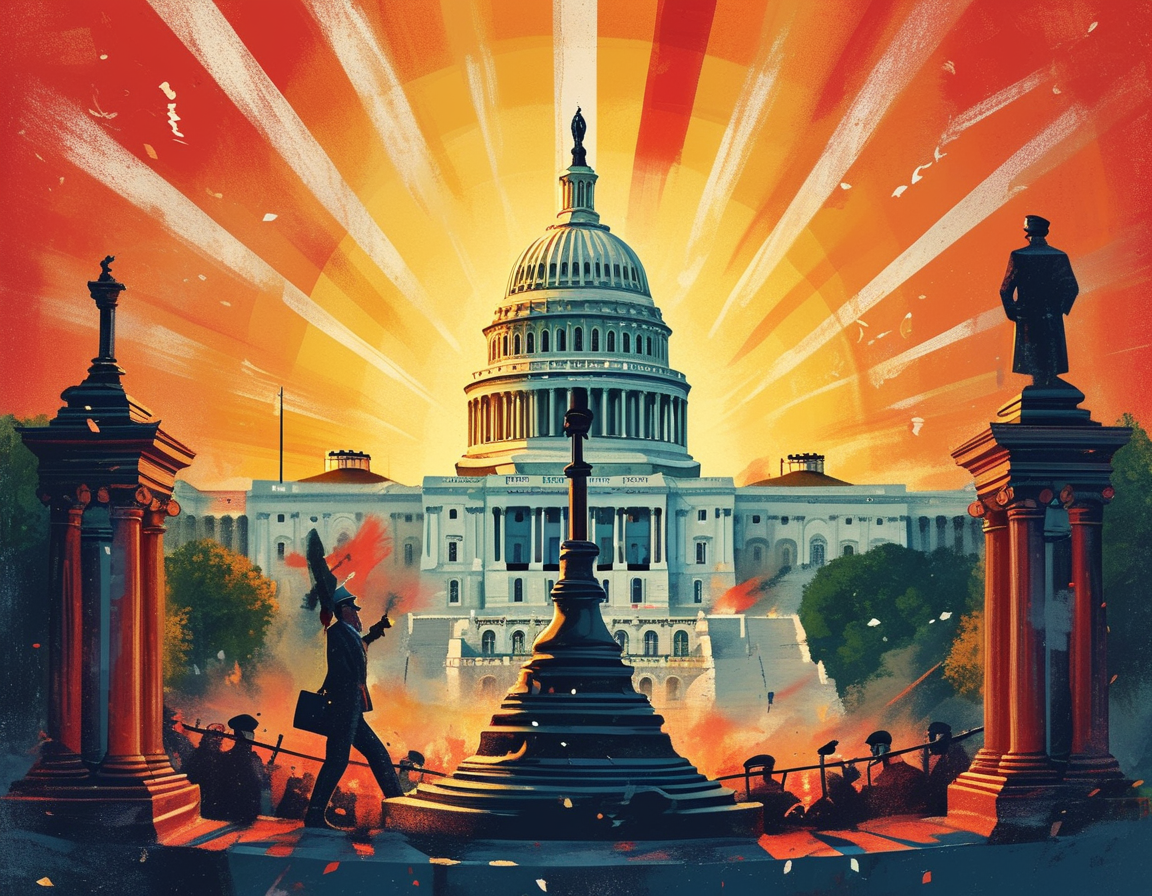
**The Executive Order’s Implications**
On April 22, 2025, President Donald Trump signed a new executive order. This order expands presidential powers in a way that many find unsettling. By requiring independent federal agencies to submit major regulations to the White House, Trump’s order raises eyebrows and sparks heated debate. Critics see this as an organized effort to shift power from Congress to the executive branch, threatening the delicate balance of governance.
The agencies affected are crucial to American oversight. This includes the Securities and Exchange Commission (SEC) and the Federal Trade Commission (FTC). Their independence is vital for fair regulation. However, if their actions must receive approval from the President, can we still consider them independent? The implications of this order stretch far beyond bureaucratic red tape.
Many legal experts argue this may violate constitutional boundaries. They point out how these agencies were initially designed to function without direct presidential influence. So, what happens when independent oversight is compromised? The fear looms large; authorities may act too closely in line with the President’s wishes, losing impartiality.
**The Rationale Behind Trump’s Move**
Trump has justified his executive action with claims that independent agencies wield excessive power. He states that these organizations impact citizens’ lives without direct accountability to the government. But does enhancing presidential control genuinely ensure better service? Supporters may argue that more oversight equates to more efficiency. Yet, this rationale elicits skepticism about whether this power grab truly aligns with democratic values.
By mandating agency coordination with the White House, Trump emphasizes strategic alignment on policy matters. Still, where is the line drawn between necessary communication and overreach? Detractors maintain that such coordination blurs lines. Politicians should not meddle in objective regulatory reviews as this risks politicizing critical decision-making processes.
Many citizens might witness this tug-of-war without being aware of its ramifications. If regulation becomes overly political, do we not risk allowing partisan interests to overshadow public welfare? This is about more than governance; it could directly affect everyday Americans from all walks of life.
**The Battle Ahead: Legal Challenges and Backlash**
Widespread criticism has emerged, particularly from civil rights groups and constitutional scholars. They warn that eroding the independence of agencies may fuel potential abuses of power. Is America prepared to accept an executive branch with unchecked authority? Critics feel vehemently that such a trend is dangerous. It may undermine fundamental principles, placing us on a slippery slope to concentration of power.
Currently, these groups are gearing up for legal challenges. Early responses suggest these cases could reach the Supreme Court. This highlights a critical juncture for American democracy. How will our highest court handle these disputes? The outcomes could redefine not only presidential powers but also the role of independent agencies in our governance.
Civil rights advocates express deep concern about the implications for transparency and accountability. A loss of independence could mean lesser scrutiny for actions that affect millions. They fear a reality where agency decisions become compromised, potentially threatening civil liberties.
**The Future of American Governance**
As we watch this unfold, we must critically assess what the future holds. Will an empowered presidency truly enhance governance, or will it usher in a new era of unchecked authority? Such questions resonate with many Americans, from lawmakers to everyday citizens. The very fabric of our democracy hangs in the balance. It begs us to consider not only the current state of governance but also the legacy we wish to leave.
In this pivotal moment, what role do we, as citizens, play in shaping our democratic institutions? Are we equipped to demand checks and balances, even from those we elect? This executive order prompts not just scrutiny of Trump’s actions, but soul-searching for all Americans. How can we participate in these vital discussions about power distribution? The answers will shape governance for generations.
Leave a Comment